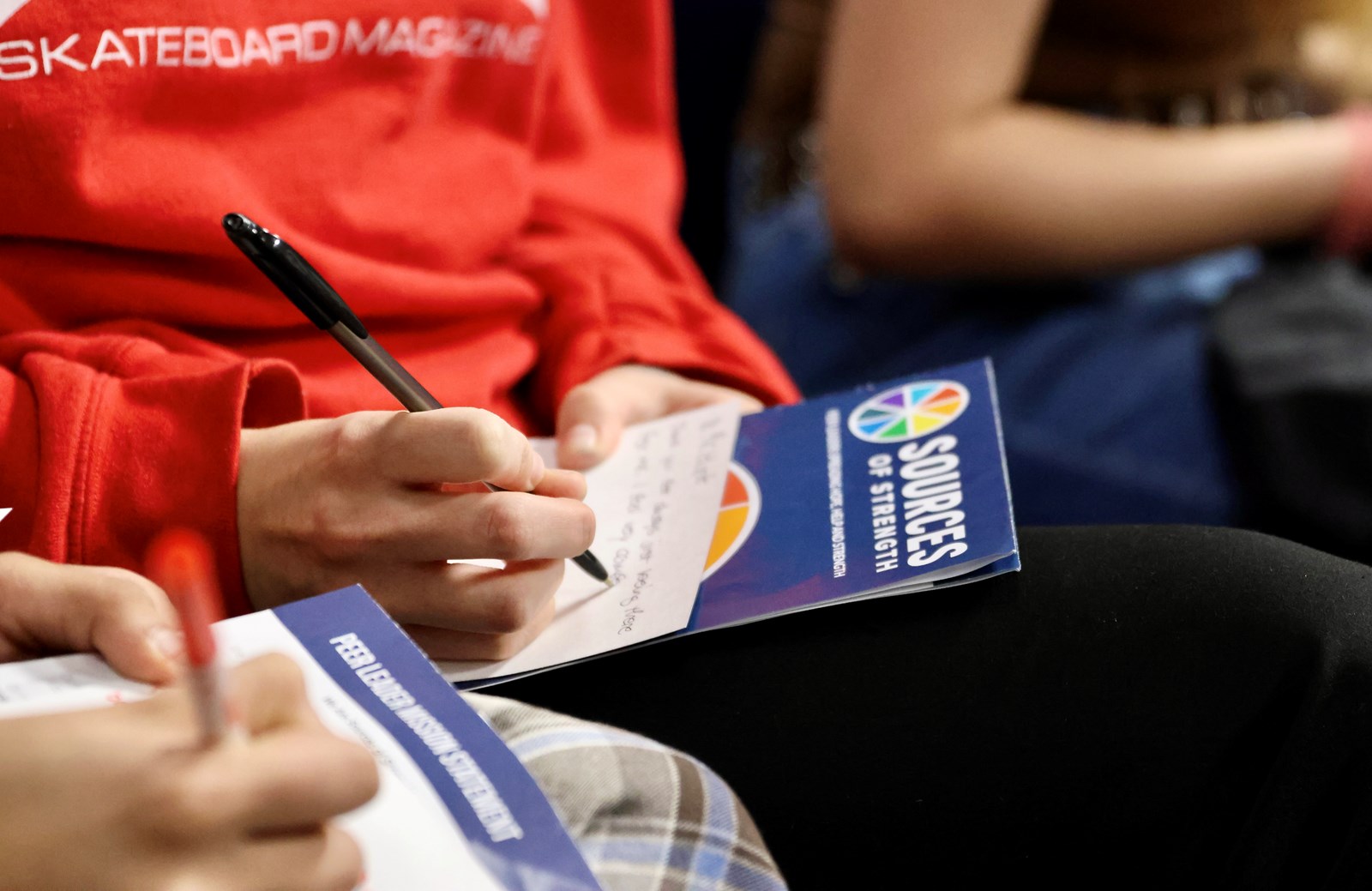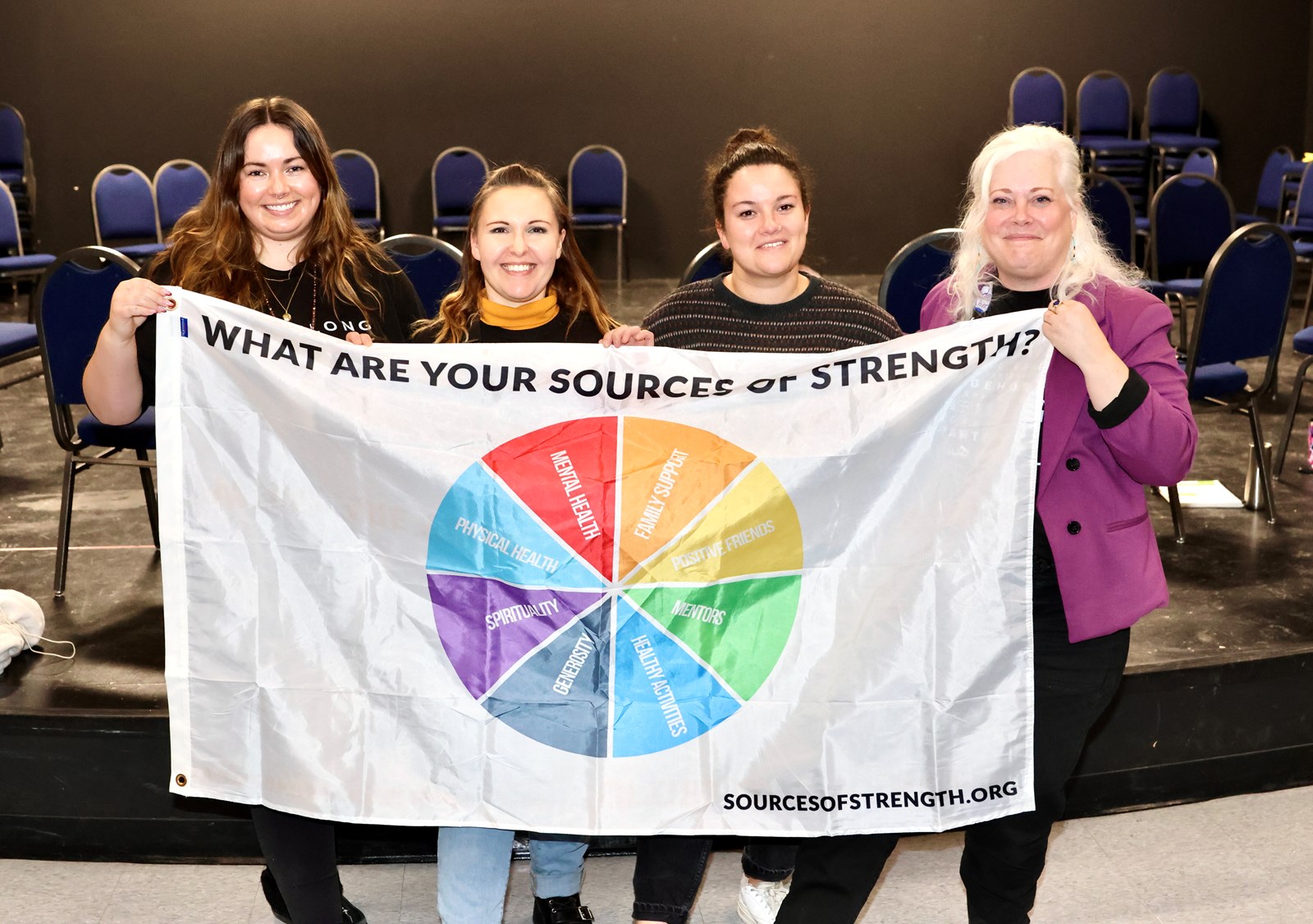Sources of Strength builds resilience in WSD students
February 1, 2024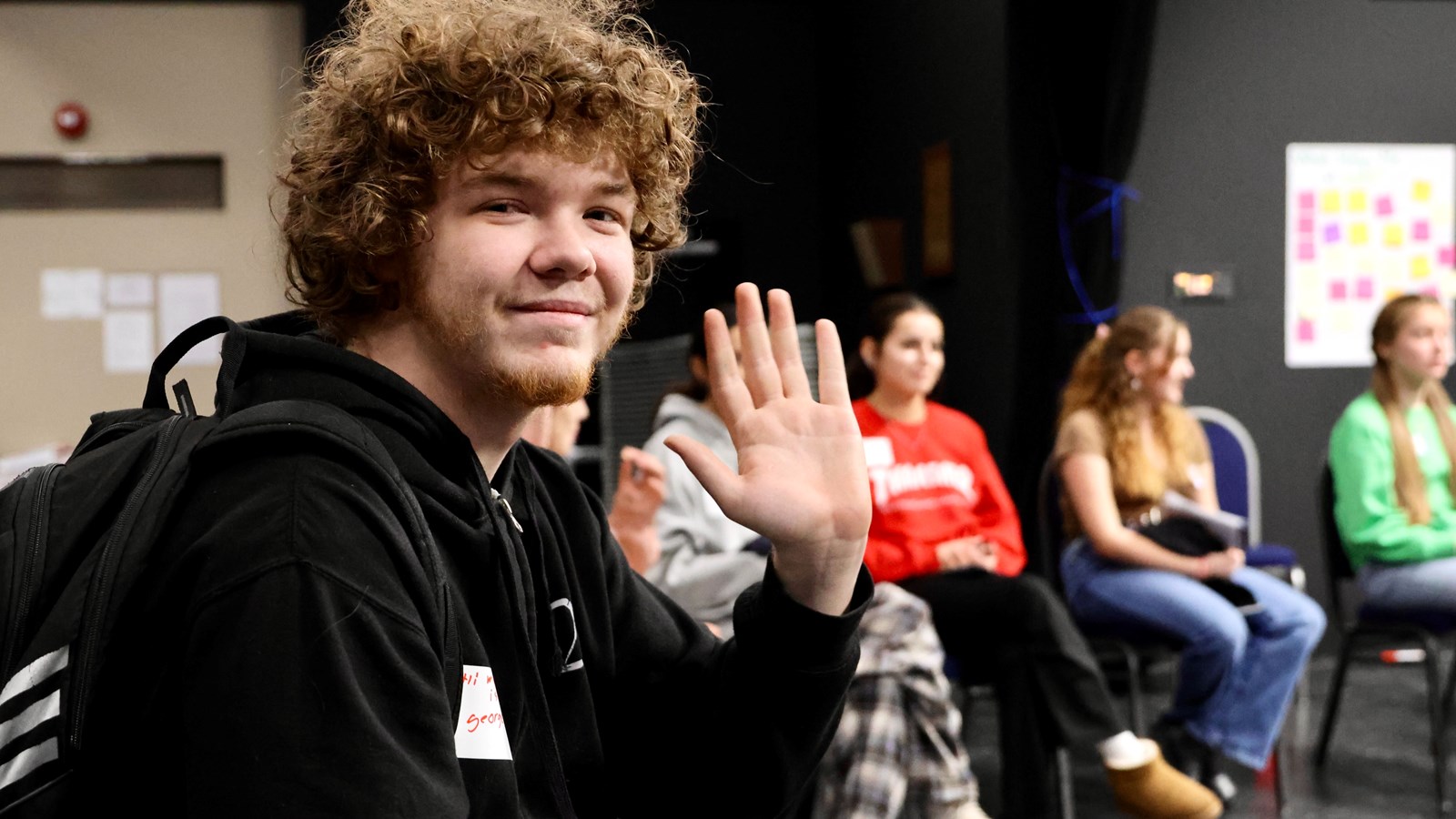
When students feel supported, valued, and safe, they are more likely to engage in learning, participate in school activities, and contribute positively to the school community. Positive school culture is not only beneficial for students but also for teachers, staff, and parents, creating a collaborative and supportive educational environment. Students who experience positive well-being during their school years are more likely to lead fulfilling and productive lives as adults. To support this important work, WSD's Safe Schools Support Team, in collaboration with Inclusion Support Services, have spearheaded a program called Sources of Strength to spread messages of hope, help and strength in WSD schools.
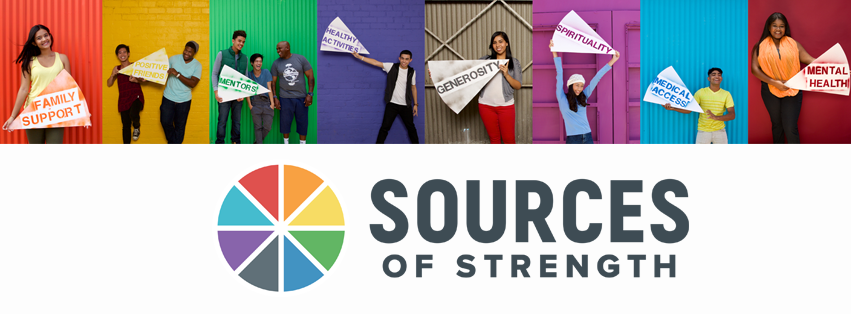 Sources of Strength is a positive messaging program that uses the power of adult leaders and mentors, peer leaders, and social networks to help students find their voice in creating a positive change in their school. The program's goal is to bring awareness to each student’s individual strengths and use a peer-led, strength-based approach to enhance eight resiliency factors.
Sources of Strength is a positive messaging program that uses the power of adult leaders and mentors, peer leaders, and social networks to help students find their voice in creating a positive change in their school. The program's goal is to bring awareness to each student’s individual strengths and use a peer-led, strength-based approach to enhance eight resiliency factors.
The team, consisting of Lea Anderson-Gregoire, Jenn Schappert, and Andrea Klepatz, has been working with 20 schools in WSD, encompassing Grades K–12. This school year, the team has introduced the program in the following elementary schools: Lord Selkirk, River Elm, Inkster, Clifton, Wolseley, Isaac Brock, Faraday, and John M. King.
“The elementary curriculum stands out as one of the most robust and engaging Social Emotional Learning programs, supporting all five of CASEL's core competencies. It emphasizes building community, fostering a sense of belonging, and cultivating strength in our young learners. At the junior/high school level, the program harnesses the power of teens to positively influence each other, aiming to reduce stigma and build hope, help and strength,” said Andrea Klepatz, safe school support teacher.
Student peer leaders are nominated by teachers and classmates to be a part of this program. They participate in specialized Sources of Strength training and meet regularly to create campaigns aimed toward helping other students find their personal strengths.
During a recent peer leader training session at St. John’s High School, the students sat in circle to share their own strengths as well as how they can help their classmates. The students brainstormed ways they could best support one another and discussed the various resources available both inside and out of their school.
"I feel like I‘m very impactful when I talk. I liked feeling like my words were impacting people and they mattered during the training session today. I hope that it (Sources of Strength) shows kids that it’s okay to be vulnerable and to need help. At St. John's, there are a bunch of people here that can help you, our school has a lot of great teachers and students. It's really comforting to know that you have so many people to help you here, even if you don't have that at home," said Rae McKay, a peer leader and Grade 12 student at St. John's High School.
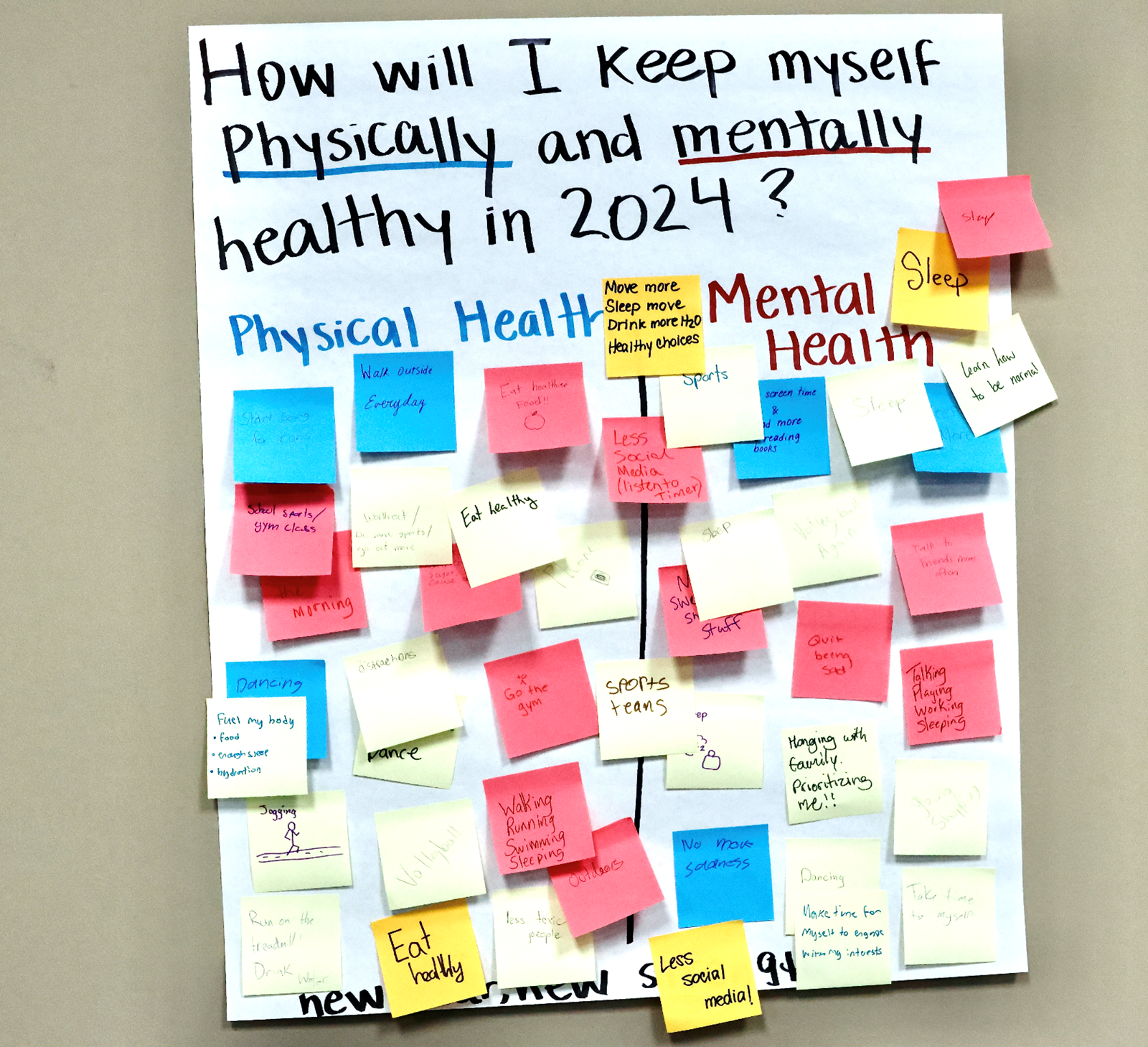
Sources of Strength serves as a suicide prevention initiative at its core, striving to equip students with a toolbox of skills to navigate life's challenges in a healthy manner. Importantly, the program seeks to redefine seeking help from trusted adults as a sign of strength—rather than weakness.
The Sources of Strength Wheel is a tool students use to identify areas of strength they can lean into during difficult times, and areas of deficit that they can build-up to better weather the storms of life:
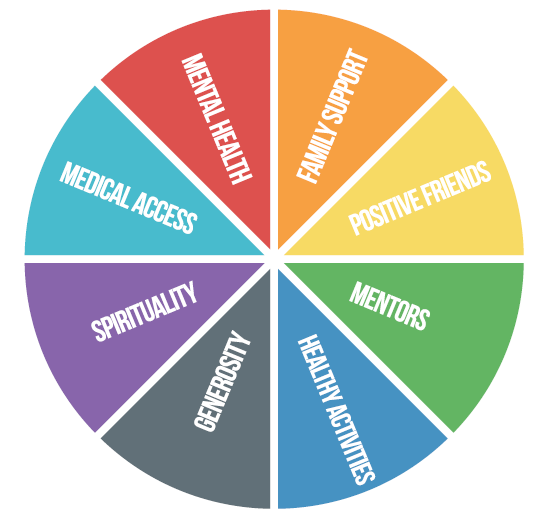
Family Support – Whether related to us by blood or by choice, these are the people who support, nurture and care for us.
Positive Friends – Positive friends lift us up, make us laugh, are honest with us, and are there for us when we need them.
Mentors – A mentor is an experienced person who shares their insight to help guide us, and help us to draw on our own strengths to be the best version of ourselves.
Healthy Activities – When we feel stressed, healthy activities – whether they are social, physical or emotional – help us unwind, lift our mood and gain clarity.
Generosity – Generosity can look a lot of different ways, from donating money or time to being intentionally kind to other people. These acts of kindness toward others, big or small, can make an impact on how we feel about ourselves.
Spirituality – Spirituality is practised in many ways, but at it's core researchers identify this as an important protective factor that gives us a sense of purpose and connection. Thankfulness is a profound way to practice spirituality together no matter what our cultural heritage or spiritual tradition.
Medical Access – When we are injured, we don't have to stay in pain. We can get better with the access to the medical care we need and deserve. Physical and social/emotional pain are often joined and it's important to take care of our bodies, hearts, and minds.
Mental Health –Mental Health is all about getting the support we need and deserve to help us when we are struggling. Our mental health is a very important part of living a healthy life, and oftentimes, getting together with a trusted person, a counselor, or a doctor can help empower us to overcome internal struggles we might be facing.

